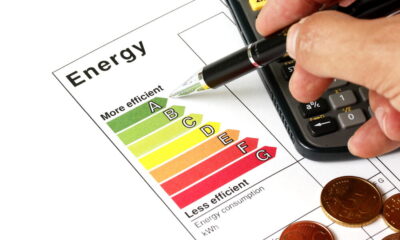

Economy
Trump & Energy: S&P Explain The Credit Implications Of The Election
While the world waits to see the political implications of the Trump Presidency, S&P Global Ratings has released a new report exploring what the administration will mean for the energy sector and related project finance, both at home and abroad.
The detailed report covers the impacts on domestic energy regulation, renewables investment, and long-term credit quality across a variety of energy and infrastructure related sectors. Some key highlights:
- Coal to compete with gas – Although Trump notes that coal-mining employment has been on the wane throughout the Obama Administration, S&P notes this is a product of tumbling gas prices diminishing coal competitiveness, rather than simple regulatory factors. Coal could become competitive again should state or federal governments enact fracking regulations that would slow natural-gas production.
- The survival of The Clean Power Plan (CPP) and The Paris Agreement (COP21) – The potential for CPP to be implemented is weakened due to Trump’s stance on energy and environmental policy. Trump has stated he would pull out of the Paris Agreement as well as other international climate accords. Indeed, fulfilling the Paris Agreement – to reduce nationwide carbon emission – will be much more difficult without a domestic policy like the CPP.
- The fate of nuclear – The absence of favourable environmental policies (like the CPP) will create long-term challenges and closures of low-carbon nuclear generators that would have previously benefitted from carbon pricing or subsidies.
- Renewables– In the long term, we are now likely to see dwindling incentives for renewable production as tax credits roll off from 2019. Unless they are renewed, renewable producers will face increased challenges.
- Credit vulnerabilities – Each large independent power producer (IPP) S&P rates has considerable vulnerability to environmental regulation, for better or worse. Impacts on corporate issuers could become very pronounced over time. Carbon regulation and a higher carbon price would benefit the credit of companies like Exelon Generation Co., for instance, who have no coal in their portfolios. However, companies like Dynergy, Inc. with considerable coal investments might stand to benefit from carbon price deferment.
In a direct statement, primary author of the report, Michael Ferguson, Director of U.S. Energy Infrastructure at S&P, said:
“As the Trump presidency unfolds in 2017, we’ll begin to assess what impacts, if any, his Administration will have on energy industry credit quality. Naturally, we expect there will be credit consequences, impacting, at a minimum, investor-owned utilities, unregulated generators, renewable developers, midstream entities, and coal companies.”


 Environment12 months ago
Environment12 months agoAre Polymer Banknotes: an Eco-Friendly Trend or a Groundswell?

 Features11 months ago
Features11 months agoEco-Friendly Cryptocurrencies: Sustainable Investment Choices

 Features12 months ago
Features12 months agoEco-Friendly Crypto Traders Must Find the Right Exchange

 Energy11 months ago
Energy11 months agoThe Growing Role of Solar Panels in Ireland’s Energy Future





























